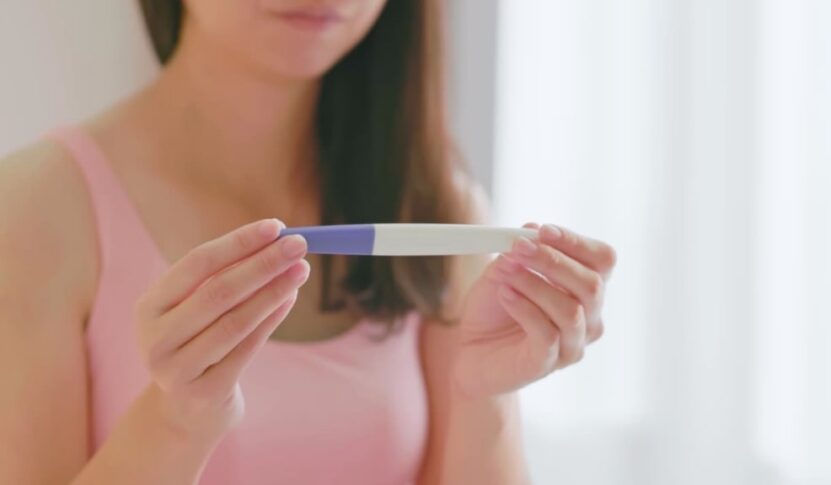Often, the body starts giving hints about pregnancy even before a missed period. This guide will explore the top 10 signs that can occur before a missed period, providing insights into the subtle changes a woman’s body may experience in the initial stages.
From physical symptoms to hormonal changes, we’ll cover the key indicators that suggest the possibility of pregnancy.
1. Raised Basal Body Temperature
Your basal body temperature (BBT) can be a tell-tale sign of pregnancy. A slight rise in BBT, typically around 1 degree, can occur post-conception and may stay elevated throughout this period.
This increase in temperature is due to the hormonal changes that occur after implantation, particularly the rise in progesterone, which is essential for maintaining early pregnancy. Monitoring your BBT can provide early clues, although it’s not a definitive sign on its own.
It’s important to note that other factors like stress, illness, or lack of sleep can also affect your BBT. Therefore, while a sustained increase in basal body temperature can hint at pregnancy, it should be considered alongside other symptoms for a more accurate assessment.
2. Heightened Sense of Smell

Many women report a heightened sense of smell as one of the first signs of pregnancy. If you find yourself more sensitive to odors, it could be an early indicator. This enhanced olfactory sensitivity can make previously unnoticed or mild scents seem overpowering and sometimes unpleasant.
It’s not uncommon for certain perfumes, foods, or even everyday smells like coffee to suddenly become intolerable. This change is often accompanied by a strong aversion to certain smells, which can contribute to food aversions or nausea, commonly known as morning sickness.
Interestingly, this heightened sense of smell is thought to be nature’s way of helping expectant mothers avoid foods that could be harmful during this period.
3. Tender, Swollen Breasts

Changes in the breasts are common early signs of pregnancy. You might notice your breasts feeling tender, swollen, and heavier. This tenderness is often one of the first indicators of pregnancy, typically occurring as early as one to two weeks after conception.
The areolas may also darken and increase in diameter as your body prepares for breastfeeding. Additionally, you may observe more prominent veins on your breasts due to increased blood flow, and some women experience a tingling sensation.
These changes are driven by hormonal fluctuations, primarily estrogen and progesterone, as your body begins the journey of nurturing a new life.
4. Fatigue

Feeling unusually tired? Early pregnancy can significantly drain your energy. This fatigue is due to the body’s efforts in building the placenta and supporting the growing fetus. It’s one of the most common symptoms experienced by expectant mothers.
This exhaustion is often more intense than the usual tiredness and can be accompanied by a need for more sleep or rest throughout the day. Hormonal changes, particularly increased levels of progesterone, contribute significantly to this fatigue.
It’s important for expectant mothers to listen to their bodies and allow for extra rest during this time.
5. Implantation Bleeding
Some women experience light spotting known as implantation bleeding. This occurs when the fertilized egg attaches to the uterine lining, typically 6 to 12 days post-conception. It’s usually lighter and shorter than a regular period.
This spotting is often accompanied by other symptoms like mild cramping, which can be mistaken for the onset of a menstrual period. The color of implantation bleeding can vary from pink to brown and is significantly less in volume compared to a menstrual period. Understanding this sign can be crucial for women tracking their pregnancy early on.
6. Changes in Cervical Mucus

Post-ovulation, if the mucus becomes creamy and persists, it might indicate pregnancy. Increased vaginal discharge, or leukorrhea, is also common as the pregnancy progresses. This discharge is typically odorless and may increase in volume as the pregnancy advances.
It serves an important role in preventing infections by maintaining a healthy bacterial balance in the vaginal area. Women may also notice that the texture of the mucus changes, becoming more pliable and moist, which is a natural response of the body preparing for pregnancy.
7. Frequent Urination

An increased need to urinate can start as early as two to three weeks after conception. This is due to the pregnancy hormone hCG, which increases blood flow to the kidneys, enhancing waste elimination for both mother and baby.
The growing uterus also starts to exert pressure on the bladder, leading to more frequent trips to the bathroom. This symptom can be more pronounced at night, disrupting sleep. Drinking plenty of fluids is important, but reducing intake before bedtime can help minimize nighttime urination.
As the pregnancy progresses, this symptom may continue or even increase.
8. Mood Swings

Pregnancy hormones can cause mood swings similar to PMS. You might feel joyful one moment and anxious or down the next. These emotional fluctuations are a normal response to hormonal changes and the impending life shift.
These mood swings can be startling and may cause feelings of unpredictability. It’s important for expectant mothers to seek support and communicate their feelings with loved ones. Engaging in stress-relieving activities like gentle exercise, meditation, or prenatal yoga can also be beneficial in managing these mood changes.
9. Bloating

Bloating in early pregnancy can be hard to distinguish from pre-period bloat. It’s caused by the hormone progesterone, which slows down digestion to allow more time for nutrients to reach the baby. This can also lead to constipation.
The feeling of fullness and abdominal tightness can be uncomfortable but is a normal part of early pregnancy. Eating small, frequent meals and staying hydrated can help alleviate bloating. Incorporating light exercise, such as walking, can also aid digestion and reduce the severity of bloating.
10. Morning Sickness or Nausea

Nausea or morning sickness is a well-known early symptom, typically starting around the 6th week. It’s caused by hormonal changes that slow stomach emptying. Despite its name, morning sickness can occur at any time of the day.
This nausea can range from mild to severe and may be accompanied by vomiting in some cases. Eating small, bland meals and snacking on dry foods like crackers can help ease morning sickness. Staying hydrated is also crucial, and ginger tea or ginger candies are often recommended for their anti-nausea properties.
For many women, morning sickness subsides by the end of the first trimester, although it can last longer for some.
FAQs
Can emotional stress mimic early pregnancy symptoms?
Yes, emotional stress can sometimes mimic symptoms, such as mood swings, fatigue, and changes in appetite. However, these symptoms alone are not definitive indicators of pregnancy. It’s important to take a test or consult a healthcare provider for confirmation.
Is it possible to experience pregnancy symptoms and then get a negative test result?
Yes, it is possible. This could happen if the test is taken too early when the levels of hCG hormone are not yet high enough to be detected. It’s advisable to wait a few days and retest or consult a healthcare provider for a more accurate blood test.
Can you feel any changes in your body immediately after conception?
While some women report feeling changes immediately after conception, it’s more common for symptoms to appear a few weeks into the pregnancy. The body’s response varies greatly among individuals.
Are there any early signs of pregnancy that are almost always accurate?
No single symptom can be considered almost always accurate for diagnosing pregnancy. Symptoms like tender breasts, fatigue, and nausea are common but not exclusive to pregnancy. A positive test and confirmation from a healthcare provider are the most reliable indicators.
How can I differentiate between premenstrual symptoms and early pregnancy signs?
Differentiating between PMS and early pregnancy symptoms can be challenging as they are often similar. However, symptoms like implantation bleeding, significant changes in basal body temperature, and sustained changes in cervical mucus are more indicative. A pregnancy test is the most reliable method for differentiation.
Does the severity of early pregnancy symptoms indicate a healthier pregnancy?
The severity or mildness of early symptoms does not necessarily indicate the health of the pregnancy. Each woman’s experience with these symptoms is unique and can vary widely. It’s important to consult with a healthcare provider for an accurate assessment of pregnancy health.
Summary
Recognizing these early signs of pregnancy can be both exciting and overwhelming. If you suspect you’re pregnant, a home pregnancy test and a visit to your healthcare provider can confirm your status. Remember, every woman’s body is different, and not all will experience these symptoms in the same way or intensity.
Embrace this journey with knowledge and understanding, and prepare for the incredible journey of parenthood.

